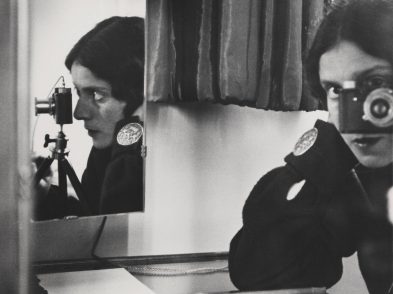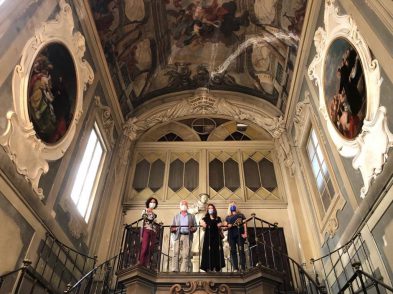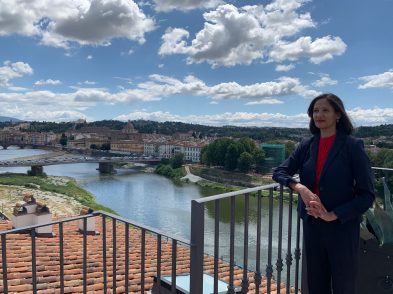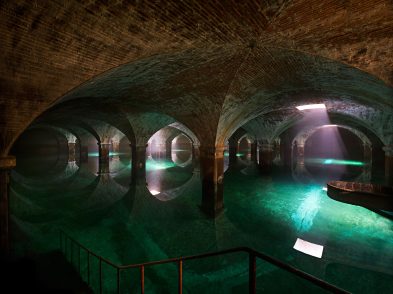It was only the third day of the New Year and I had already decided that I was not going to write a single word until the end of the next century. When I am struck by that particular form of self-pity known as ‘writer’s block,’ I sometimes seek out the people I knew long before I actually had anything to say.
Sara, Francesco and I met years back at a school in Mantova, and found each other in Florence again five years ago. We inadvertently became neighbours in November—another lucky coincidence which supports the idea that one should always keep old friends nearby. I sometimes stop at their house for tea on my way home from work, especially when the day is cold and I need to be reassured that there is still warmth in this world. Only Francesco was home when I arrived that night, and since he was already drinking tea, I sunk into the sofa and told him my news. ‘I’m done writing about Italians,’ I said.
‘Good goal for the new year,’ he smiled.
His response was so mild that I decided to try something more drastic. ‘Maybe I’ll shave my head and move to Singapore.’
‘Why Singapore?’
‘I don’t know—that’s why I want to go there. I already know about Italy. Basta, I’m bored.’
‘Alright. But before you go, come look at my new book.’
Francesco is a rock singer who works in a bank. If Italians had middle names, his would be ‘versatility.’ He is the only person I know who collects reference books for fun. 1001 Books You Must Read Before You Die is his latest intimidating addition to a shelf that already hosts titles like 100 Ideal Albums for Understanding the New Italian Song, The Ultimate Encyclopaedia of Cinema and other tomes that leave you feeling as dumb as a glow worm.
I leafed through the volume of ‘musts’ starting with the 20th century section. The pitifully-short list of novels I’ve managed to read over the years left me wondering what I have been doing with my time.
‘Francesco, reading this makes me feel like an ignorant lout,’ I frowned.
He smiled. ‘I suppose that’s the feeling I was aiming for.’
‘Why?’
‘Because once you start feeling like you haven’t already thought of everything, it means you’ll be ready to write again.’
I looked at my friend. He raised his eyebrows and it was a dare.
‘How did you get so smart?’ I asked.
He shrugged. ‘From watching television, probably.’
‘Hmm. Do you have an Ultimate TV Show book?’
‘No, but we can make our own list dei più belli,’ he grinned, already reaching for paper.
Francesco’s eagerness to create a ‘most beautiful’ list made me smile. In many countries beauty is seen as food for the soul, but nowhere more than Italy is beauty the daily bread of the common man. And it’s not enough to just see it, you’ve got to talk about it as well, and delight in rolling the word around in your mouth, as if it were toffee. Bello—the ubiquitous king of Italian adjectives is the end all be all of descriptive fervour. Before Italians decide how to deal with a person, place or thing, they verify the presence of beauty or ascertain its absence. It is the initial stage of all contemplation. In Italy, all things must pass the bello test. More than an aesthetic judgement, bello is a way to assign intrinsic worth.
Making a ‘most beautiful list’ with an Italian is no easy feat. Possibly the most commonly used word in the Italian language, bellois much harder to use than you might think. Its English equivalent is two-fold and falls somewhere between the categories of ‘good’ and ‘nice.’ Much more neutral than beautiful, bello is attributed only to that which merits universal admiration. If you call something ‘beautiful’ in English, you’re truly taking a personal stance about it. To Italians, beauty is not only a physical characteristic; it is a moral obligation and the pillar of civilization. In this country, bello is the starting point and not the summit—an expectation rather than a real achievement.
If you really want the scales of opinion to tip, then you’ve got to throw your hat over the fence and borrow adaptations of bello. The affectionate, pat-you-on-the-head word bellino, for example, leaves room for doubt. It means you like something but are willing to fathom that someone else might not. Diminutive in every way, bellino is most commonly saved for the pleasantly cute or arguably entertaining.
Contrarily, bello’s superlative bellissimo leaves no space for debate, but it does mean you want to keep talking about whatever you happen to be praising.
Our three-pronged list grew fat quickly and an hour later, when Sara joined us, we’d already started a list of the più belle songs of all time.
‘Sara, would you consider ‘My Way’ bellina, bella or bellissima?’ Francesco asked before she even got her coat off.
‘Frank Sinatra is all three,’ she said without skipping a beat.
I smiled. How I loved my friends. They too, were all three.
I left feeling much better. Vanilla bean tea, The Voice and heavy books do much to heal the tired soul. Singapore was just a passing fancy. It was the third day of the year, and life was full of beautiful things. Unarguably.







